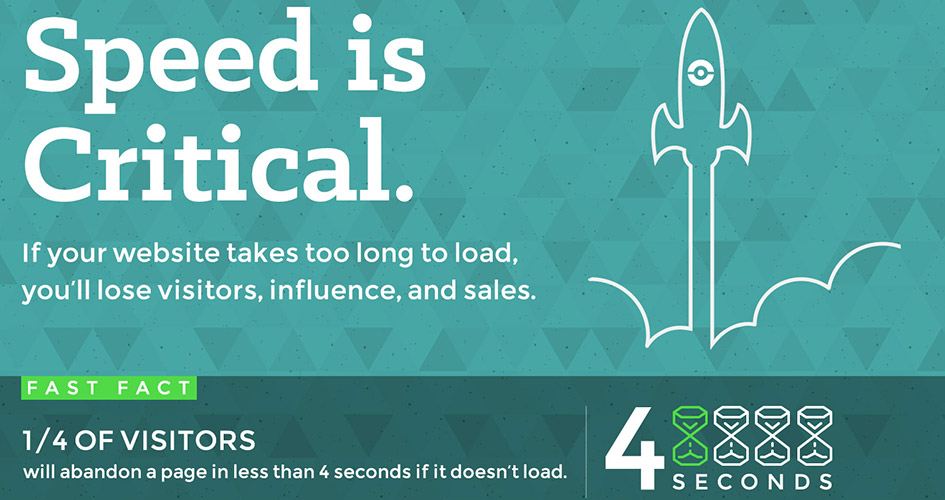One fourth of your website’s visitors will abandon your site if it doesn’t load for them in under 4 seconds. Slow website speeds can affect your site in more ways than you may realize: if your site takes too long to load, you run the risk of losing traffic, customers and ultimately sales. If your website thrives off of e-commerce, site speed could be passively killing your conversion rates.
The good news, however, is that there are plenty of steps you can take to reduce sluggish load times. Check out some of the below tips and best practices from cloud hosting company SingleHop on how to increase your website’s speed:
- Test your site to diagnose any active website speedbumps
- Optimize your images and consider mobile-friendly markup like HTML5
- Remove any heavy widgets and plugins
- Minify your script to remove unnecessary code
- Consider a scalable website host to ensure that you can scale your resources up or down in the event of an increase in traffic.


